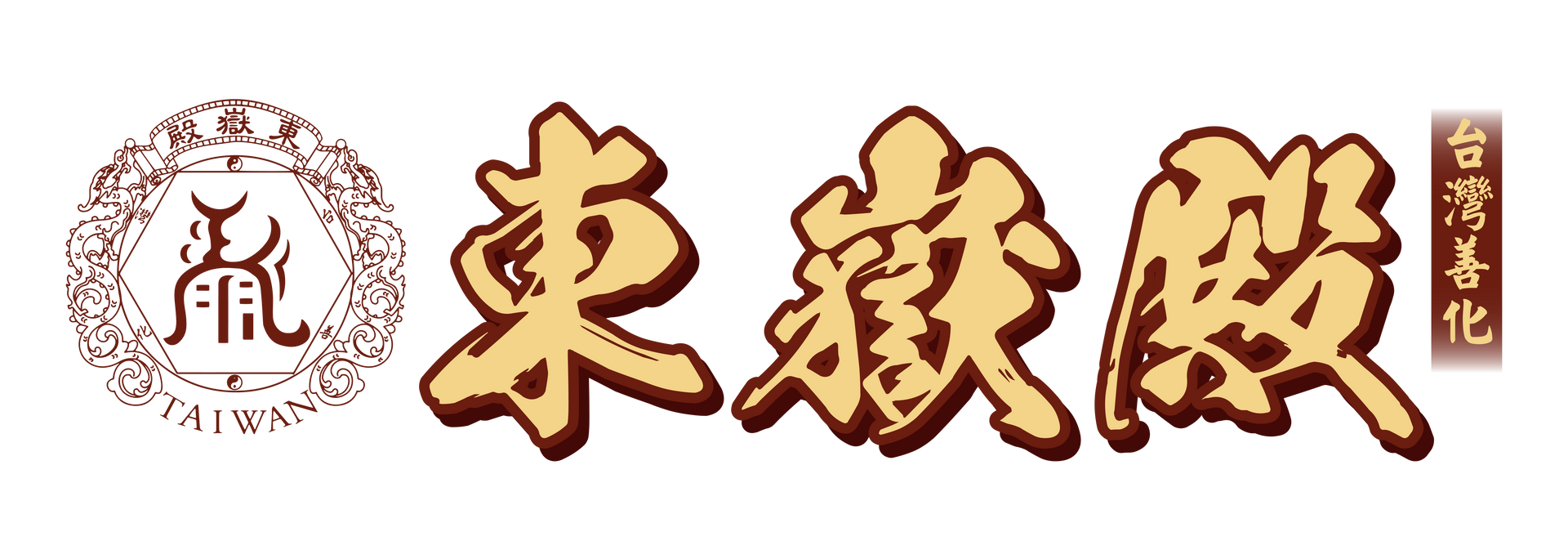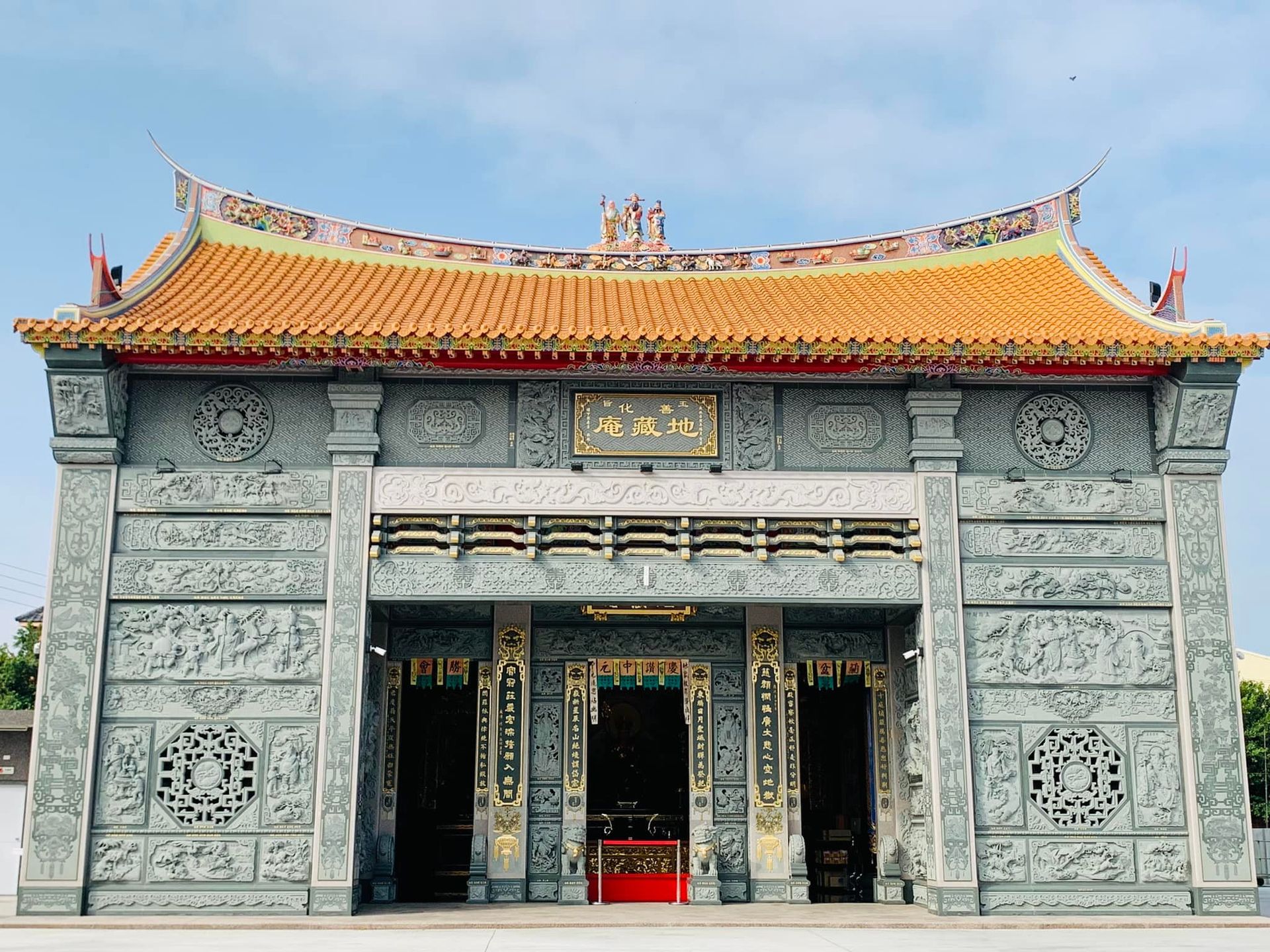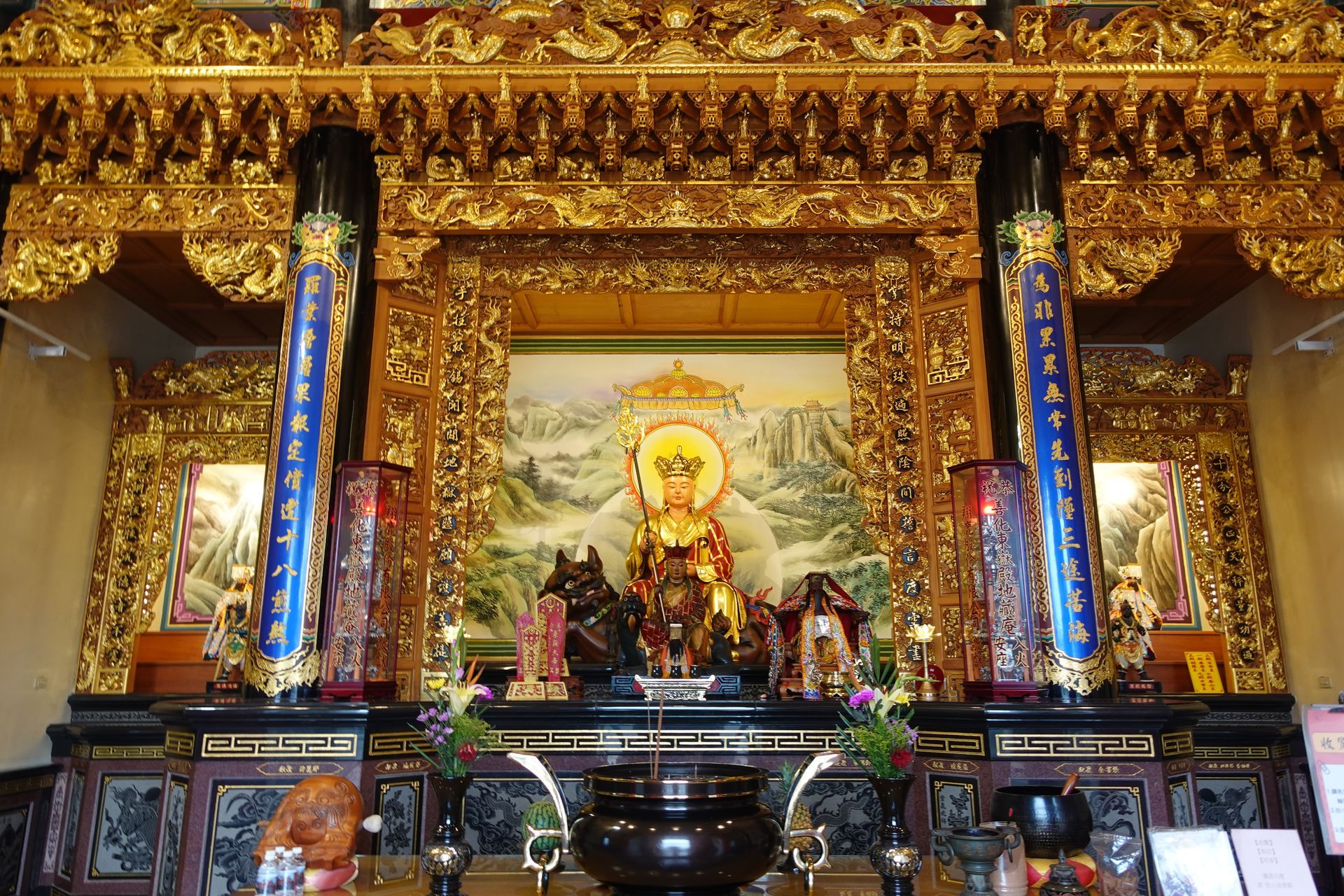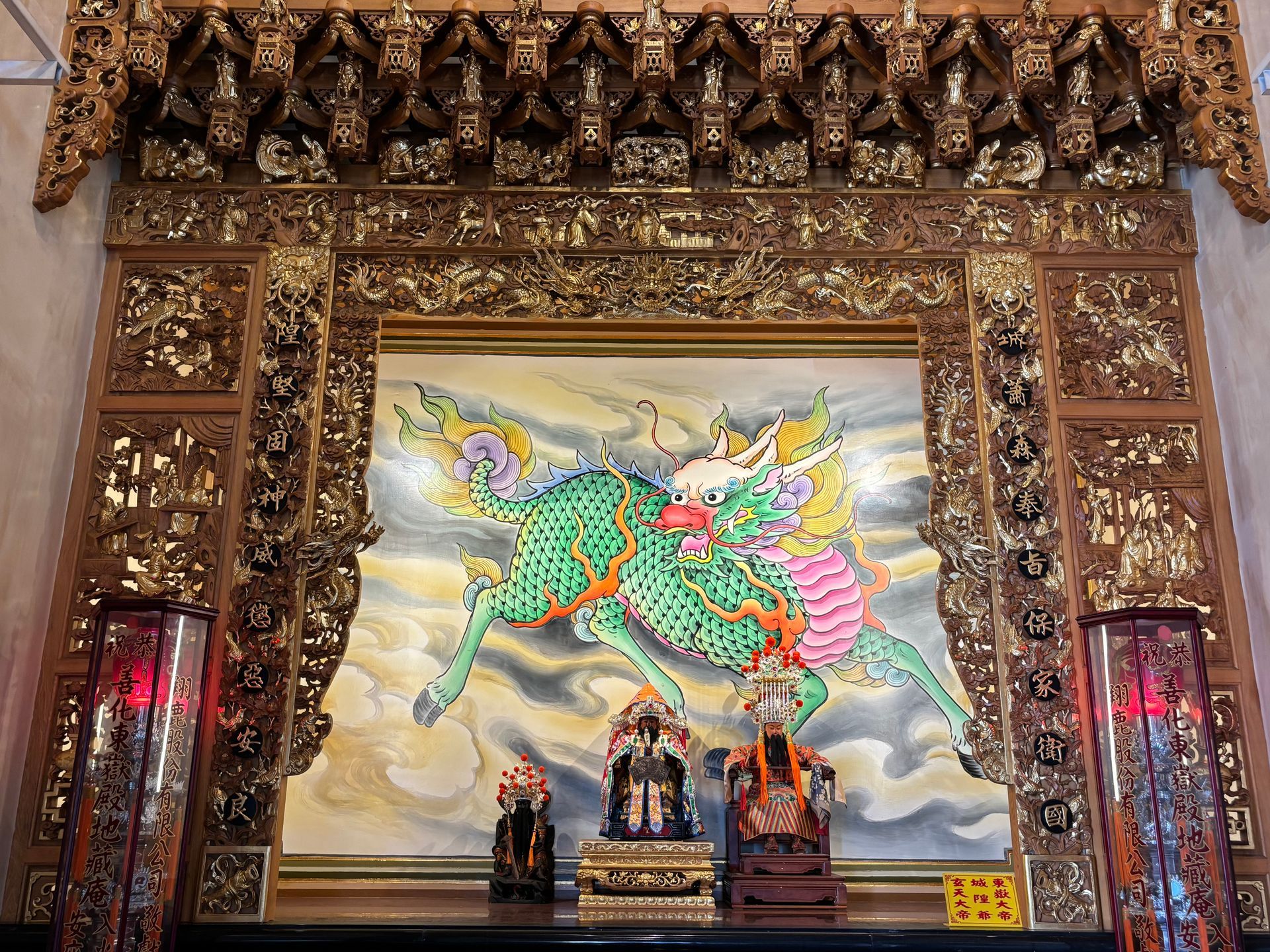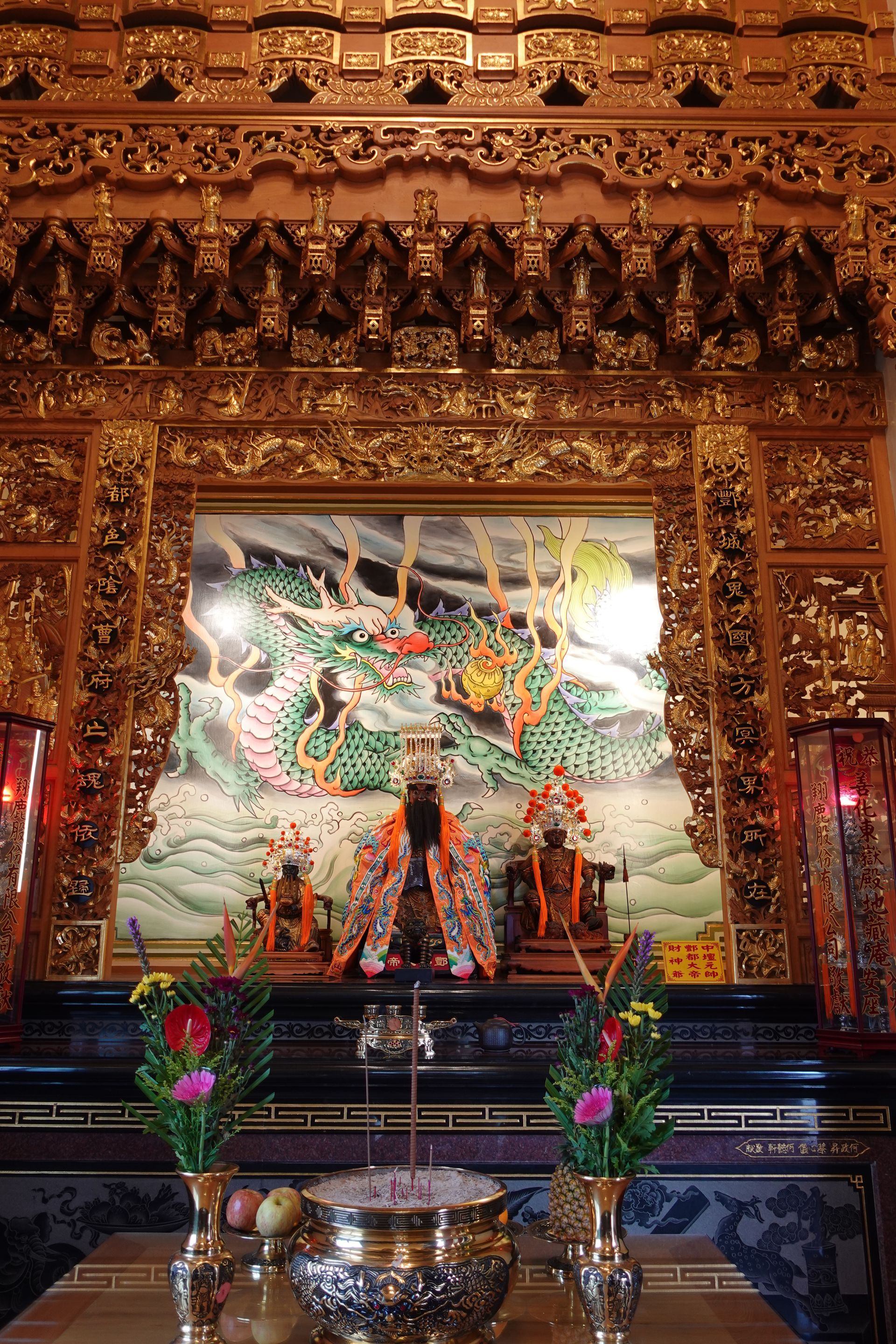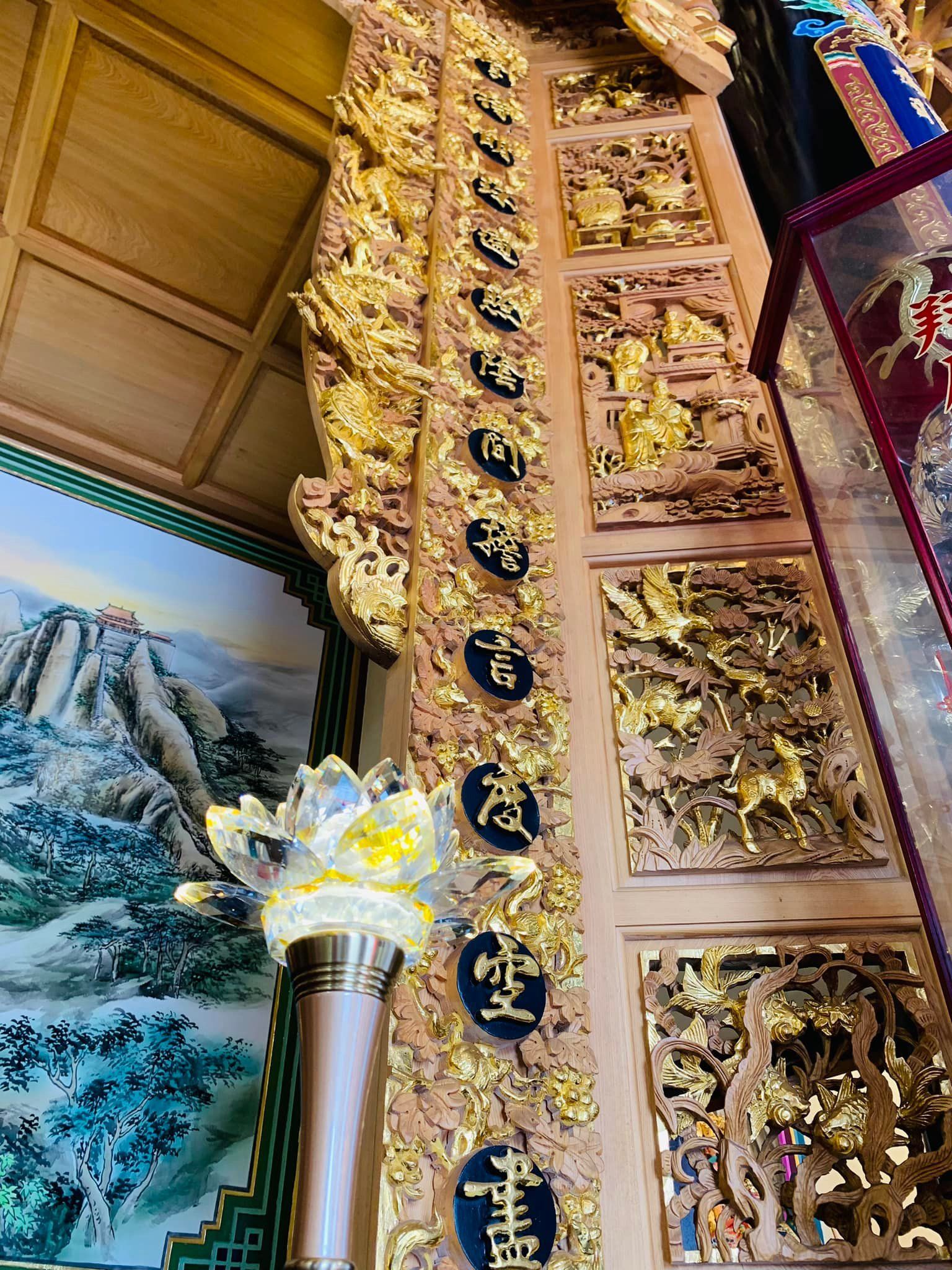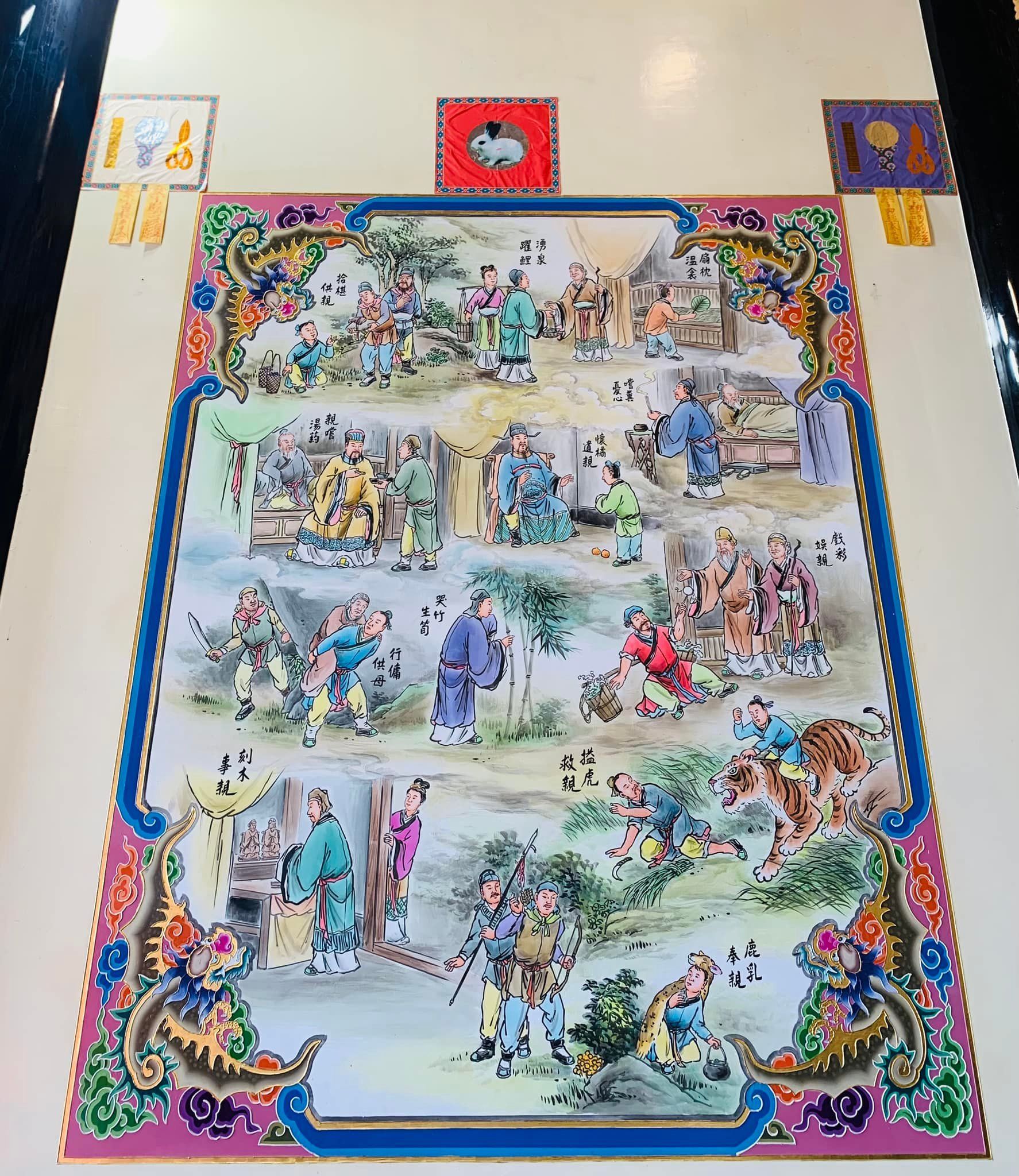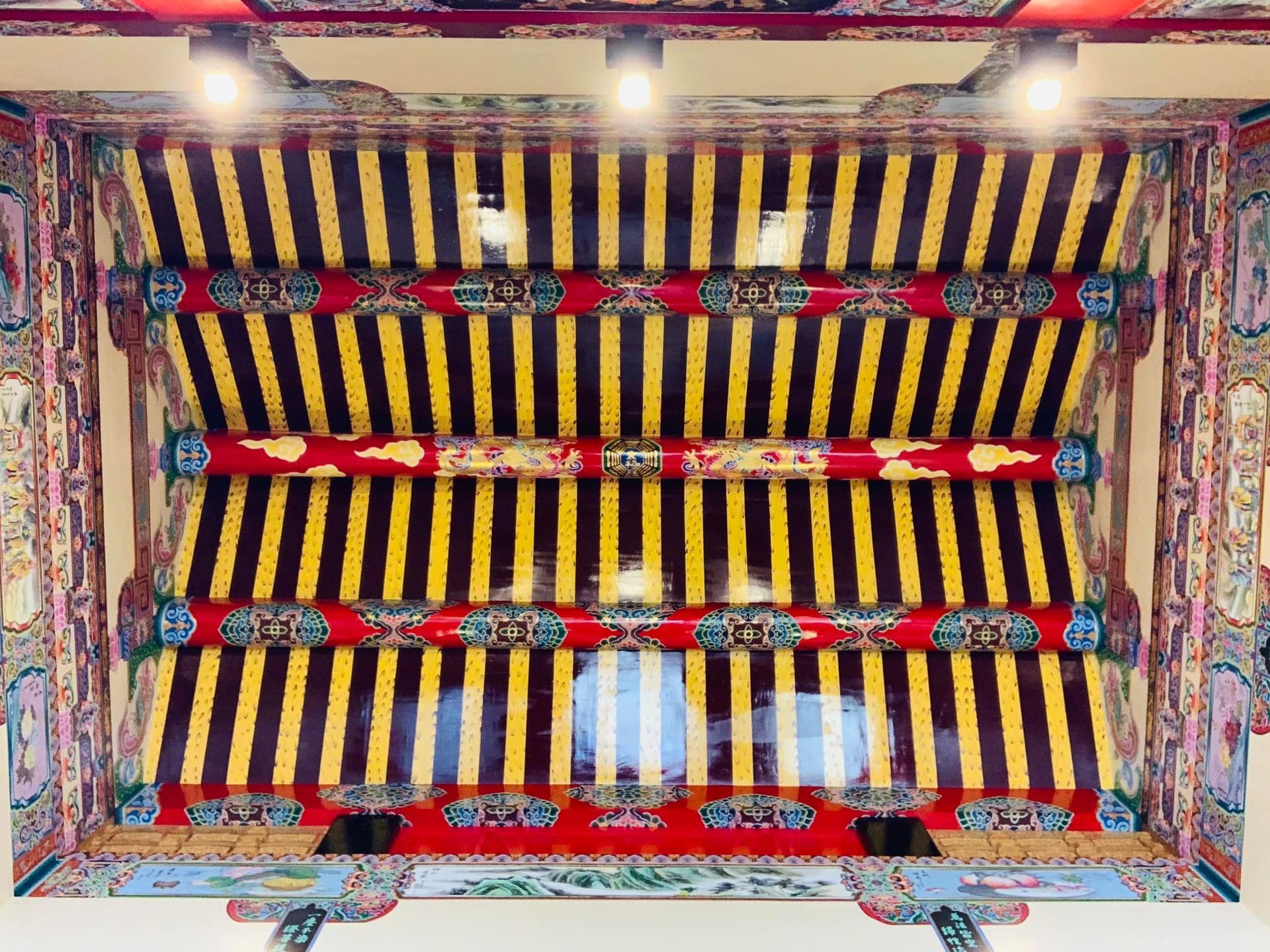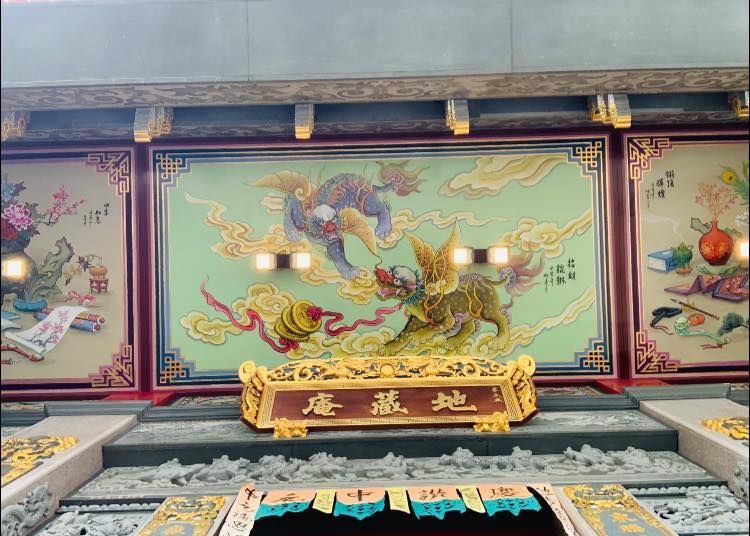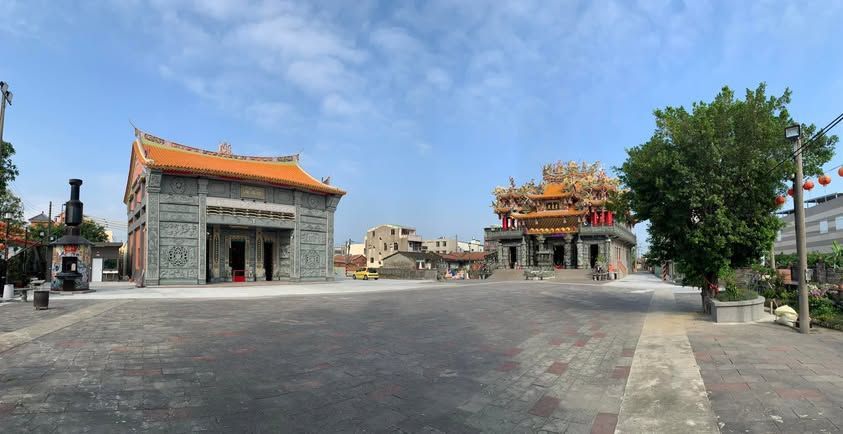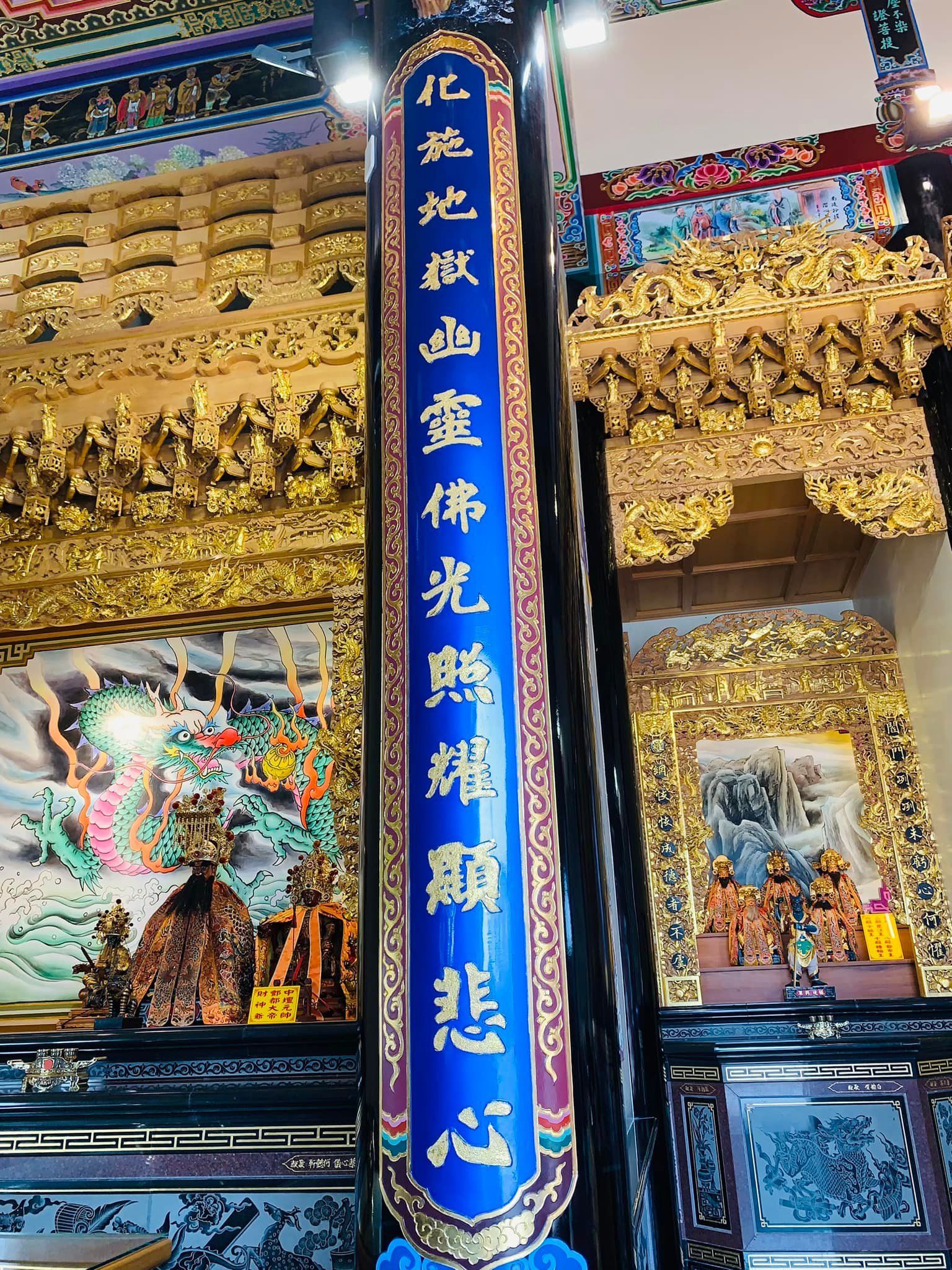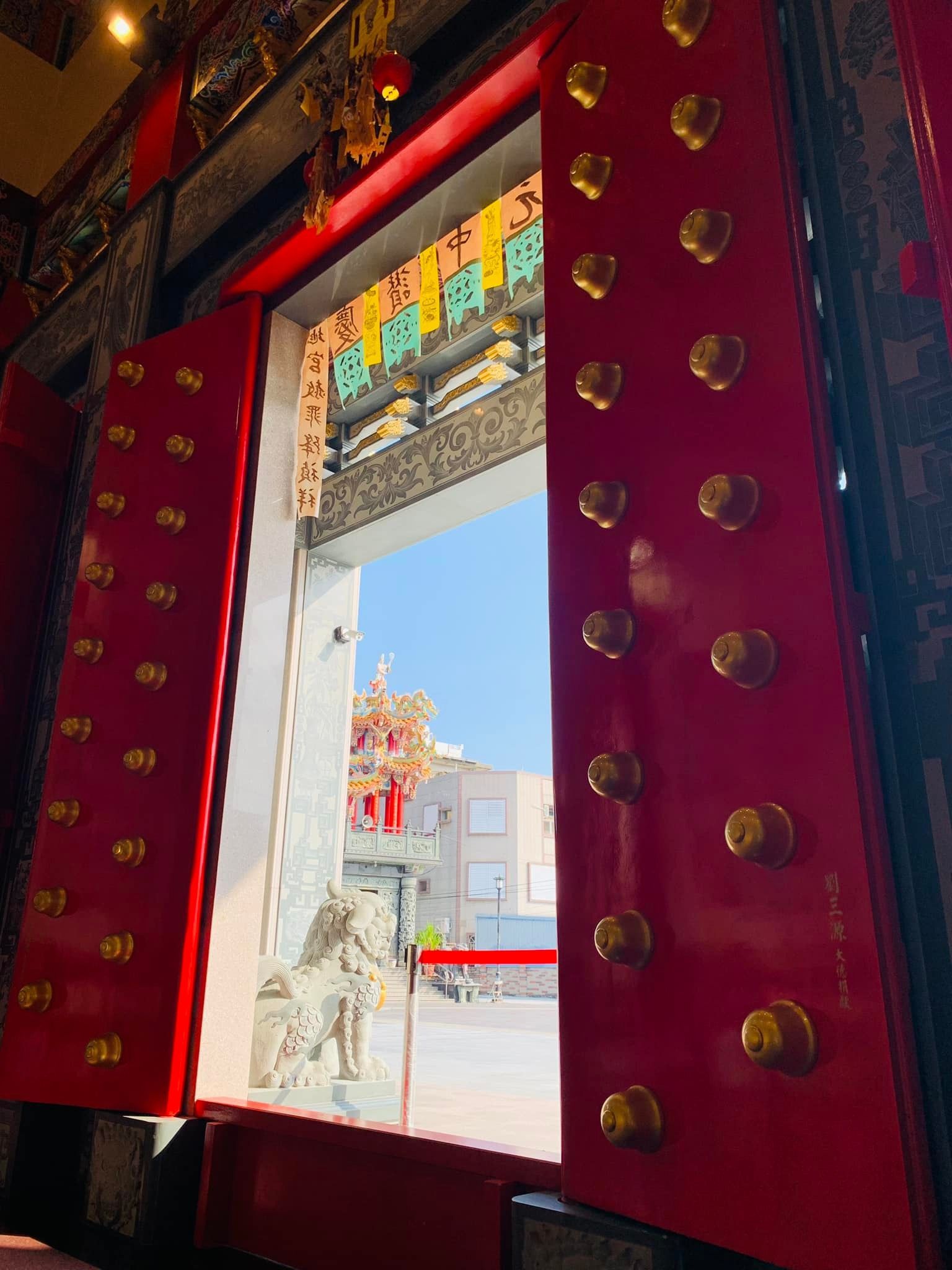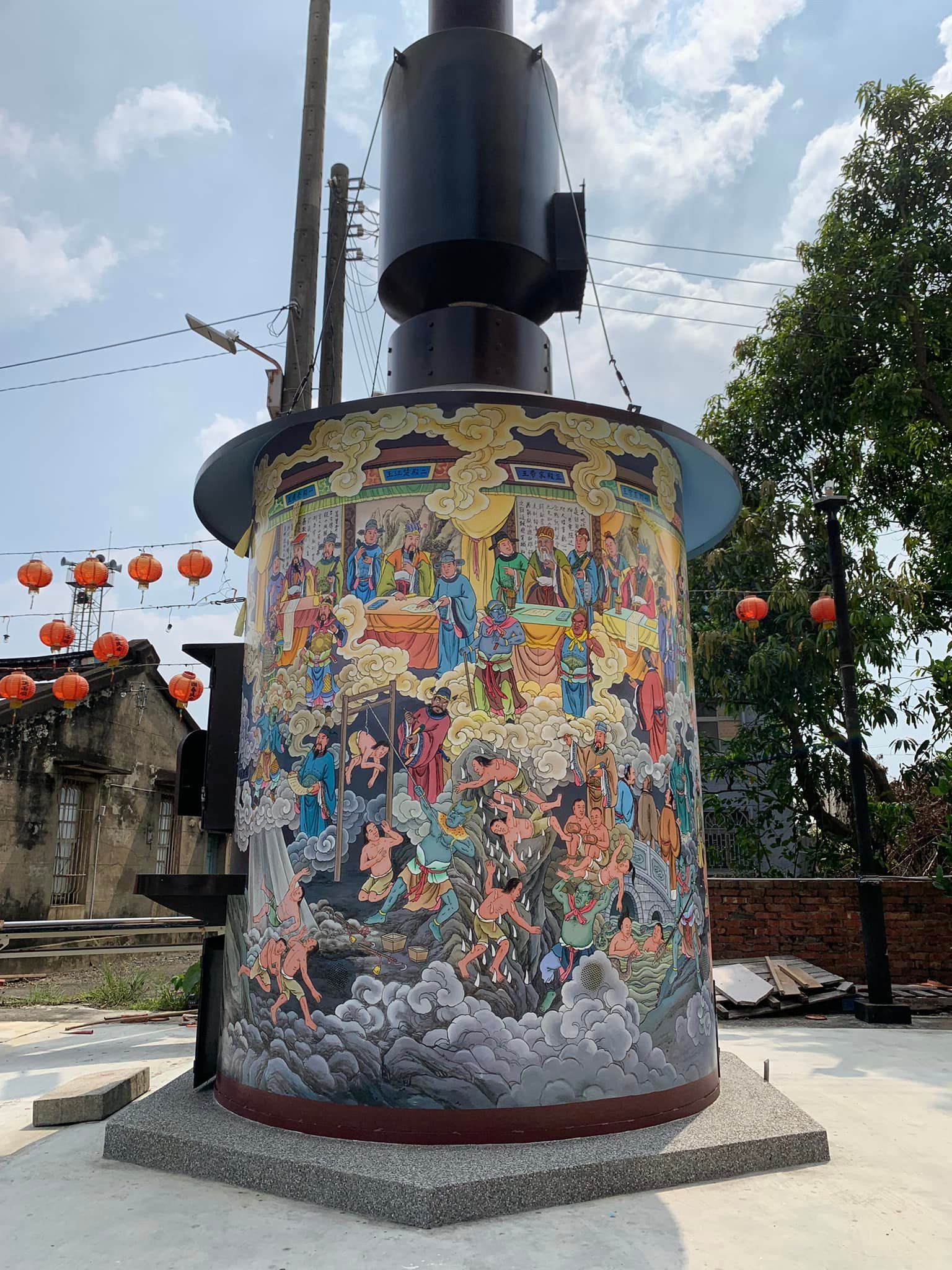Dizang Temple
History
In 2007, Emperor Dongyue descended and gave instructions to build the Dizang Temple.
When they first received instructions from the Emperor of Dongyue to carry out these special rituals, the relevant deacons of Dongyue Temple went to the "Jade Emperor Peak of Mount Tai" on the mainland to request orders for three consecutive years. Only after the orders were approved could they carry out these tasks.
Shanhua Dongyue Temple - Dizang Temple
The solemn and majestic "Shanhua Dongyue Hall-Dizang Temple" sits alongside the "Shanhua Dongyue Hall" within the main temple courtyard. Its intricately carved walls symbolize traditional temple culture and the architectural aesthetics of stone carving.
The compassionate presence of Ksitigarbha Bodhisattva brings peace and stability to the people. The Shanhua Dongyue Temple and the Dongyue Temple Ksitigarbha Nunnery complement each other, offering a variety of temple services and praying for the spirit of universal salvation.
Jizo-an is not only a place to ward off disasters and misfortunes, but also invites you to visit
Pray for health and safety!
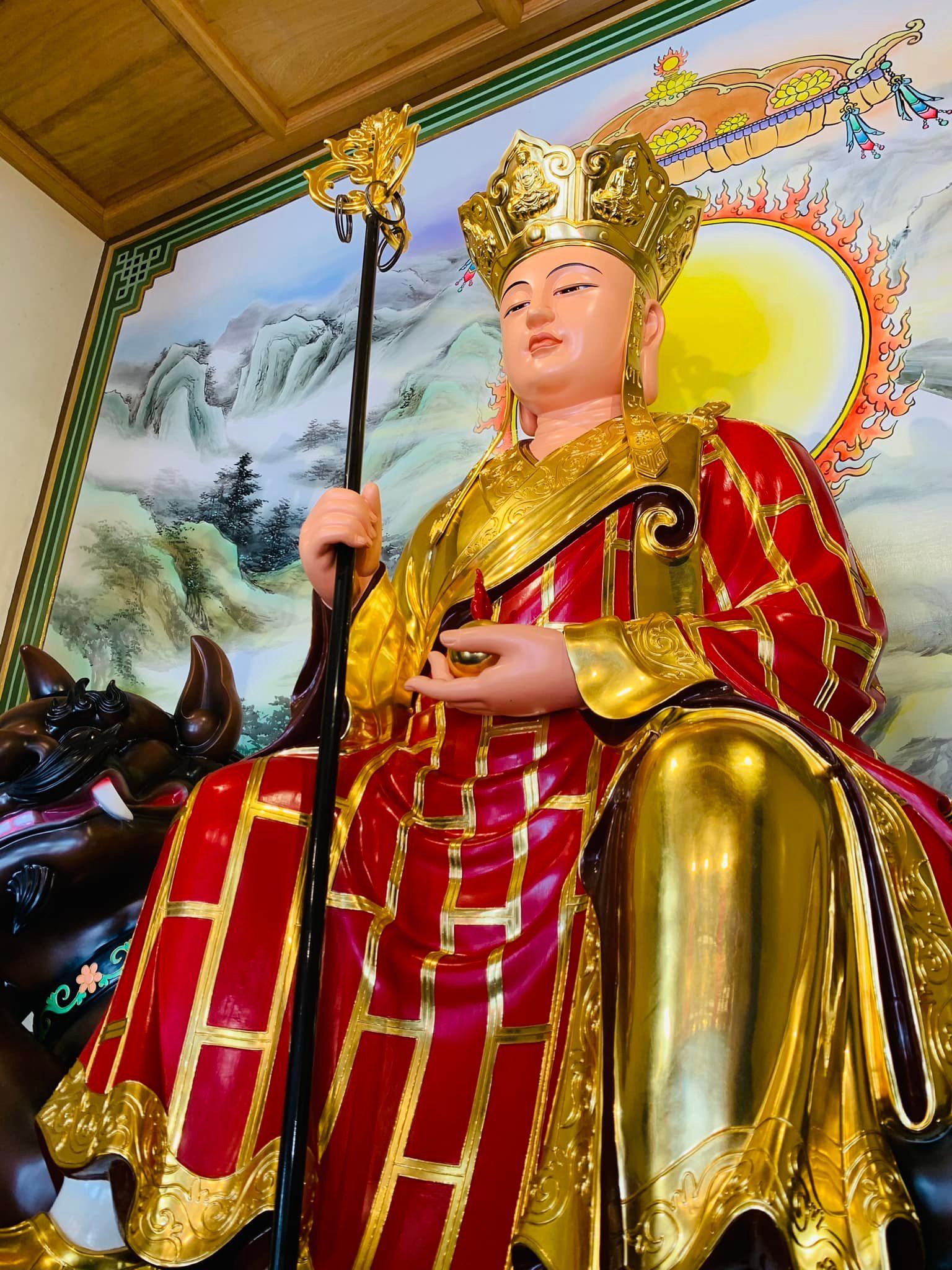
Ksitigarbha Bodhisattva
Worship the main god
Ksitigarbha Bodhisattva, with his compassionate heart, liberates and liberates the suffering of mankind and those in the netherworld. His image, brimming with compassion and majesty, carries a calming power.
The Ksitigarbha Bodhisattva at the Dongyue Temple is a bronze sculpture by Master Xiao Renneng. Visitors can admire the exquisite craftsmanship of this sculpture.
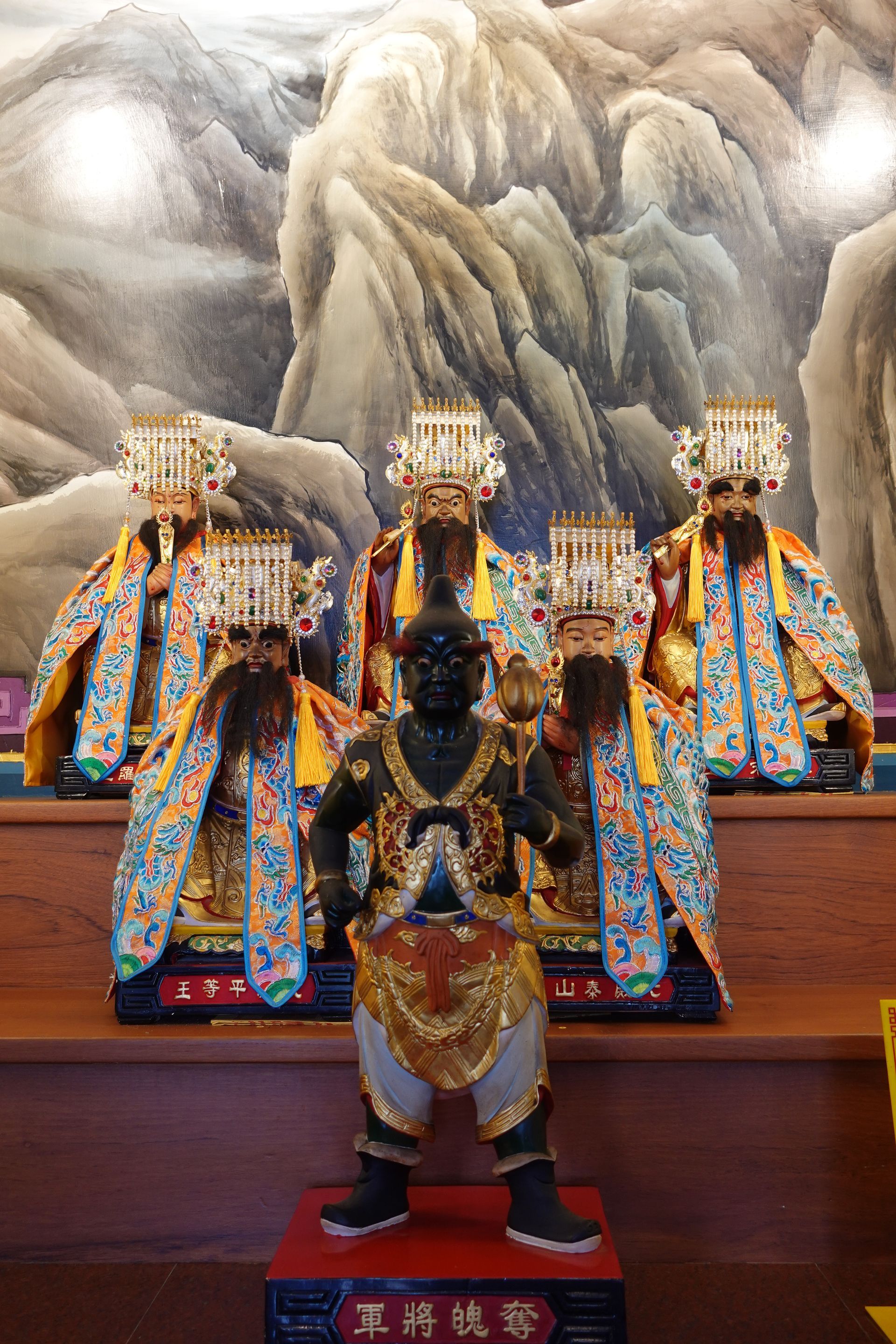
Ten Kings of Hell (Right Hall)
Odd Hall: In charge of the trial center and the distinction between merits and demerits
First Hall|King Qin Guang
King Qin Guang is responsible for reviewing the Book of Life and Death, the first checkpoint for the deceased upon entering the underworld. He maintains records of lifespans on earth, examining whether lifespans have reached their end. He can also extend lifespans based on merit or encourage good deeds. This gate marks the beginning of the Ten Courts of Justice, symbolizing justice and a beginning.
The Third Hall|Emperor Song
The Song emperors judged crimes of disloyalty, unfilial piety, injustice, disrespect for teachers, and other moral violations. This hall, with its cruel punishments such as the Black Rope Hell, instilled deep repentance in offenders. This hall demonstrates the underworld's emphasis on human relations and fundamental morality, educating people to practice filial piety and observe propriety.
Fifth Hall|King Yama
Yama, the most renowned, presides over the center of the Ten Halls of Justice, specifically judging souls with complex crimes. This hall carefully weighs the merits and demerits of those with mixed virtues, deciding whether to send them to the deeper levels of Hell or into reincarnation. He is the crucial judge of the underworld.
Seventh Hall|King of Mount Tai
The King of Mount Tai governs spirits that disrupt nature, defy the laws of nature, and disrupt yin and yang. He oversees places like volcanoes and ice prisons. Besides judging the dead, he oversees the spiritual energy of mountains and rivers, and the peace of the earth. He is the guardian of the barrier between yin and yang, and holds an awe-inspiring presence.
Ninth Hall|King of Equality
The Equal King reviews the crimes judged by the previous nine halls and makes the final assessment of merit and demerit, symbolizing the equality and fairness of judgment in the underworld. This hall, without regard for personal feelings, determines fate based purely on karma, ruling the final stage before reincarnation.
Soul-Calling General
The Soul-Calling General is one of the important servants under the command of the Emperor Dongyue. He is responsible for summoning the souls of those whose life span has ended but who are unwilling to leave the world, and leading them across the Naihe Bridge to be judged by the underworld.
The Soul-Calling General bears a majestic appearance, crowned with twin horns and wielding a magical instrument called a "disciplinary staff." This symbolic warning serves as a warning to humanity against reckless abandon and attachment to the worldly realm. Though the statue is modest, its ferocious and sinister features create a formidable presence, highlighting the severity of his duties. Anyone who beholds his presence is filled with awe, realizing the unbreakable laws of the underworld.

Ten Kings of Hell (Left Hall)
Even-Numbered Halls: Punishment for Sins and Arrangement of Reincarnation
Second Hall|King Chujiang
King Chujiang punished those who committed serious crimes such as adultery, murder, and violence. He created hells such as tongue-pulling, scissor- ...
Fourth Hall|King of the Five Senses
The King of the Five Senses examines the karma created through the eyes, ears, mouth, nose, body, and mind. Those who lie, look evilly, or have evil thoughts are judged here. This hall warns people to maintain the integrity of the five senses and not let small sins accumulate into great sins.
Sixth Palace|King Biancheng
King Biancheng punishes crimes such as hypocrisy, greed, corruption, and injustice. He regularly incarnates punishments such as freezing, cutting the tongue, and amputating limbs. This is a crucial place for punishing the cunning and treacherous, and for teaching people the importance of honesty and integrity.
The Eighth Palace|City King
The City King judges those who commit fraud, counterfeiting, financial fraud, illicit business practices, and malicious schemes. He also accepts ghosts who have no recourse, bringing justice to those wronged. He serves as a bastion of justice in the underworld, valuing both responsibility and compassion.
The Tenth Hall|Chakravartin
The Chakravartin presides over the final decision of the six realms of reincarnation. Based on the decisions of the previous nine halls, he arranges the rebirth of the deceased souls: the virtuous are reborn in the human realm or heaven, while the wicked are reborn in hell, the realm of hungry ghosts, or the animal realm. This hall houses the "River of Forgetfulness" and the "Mengpo Pavilion," where the souls begin anew.
Soul-stealing General
The Soul-Capture General is also a general under the command of the Great Emperor Dongyue. He works together with the Soul-Invoking General and is responsible for capturing the souls that are obsessed and linger in the world of the living, so that they can return to the right path and report to the underworld.
The Soul-Catching General, symbolized by a single horn, wields a magical "melon mallet," symbolizing the awakening of lost souls and the guidance of the clear distinction between life and death. The deity's delicate demeanor, yet its formidable expression, silently demonstrates the sternness of the netherworld's law enforcement. Standing alongside the Soul-Calling General, they carry out the crucial task of apprehending souls, maintaining the clear distinction between yin and yang.
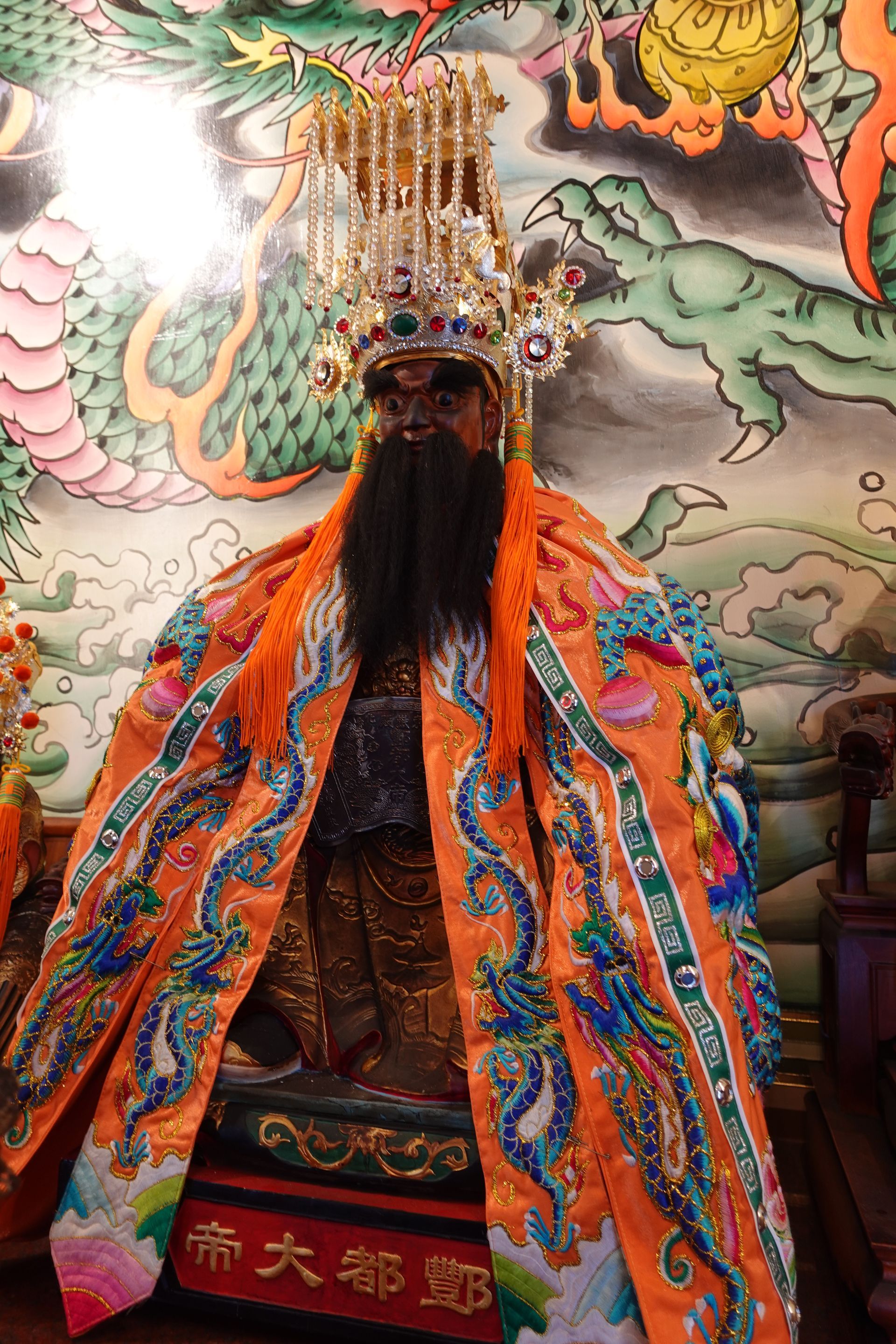
Emperor of Fengdu
Worship the deity
Emperor of Fengdu|Head of the Underworld, Supreme Being of the Netherworld
Fengdu Emperor, also known as Fengdu Beiyin Emperor, is the supreme commander of the Taoist underworld. He commands the Ten Kings of Hell and all the underworld generals. Residing atop Fengdu Mountain, he oversees all matters of the underworld. He is almighty and impartial, upholding the order of yin and yang and dispensing rewards and punishments. He is the supreme ruler of the underworld.
In the belief system, Fengdu Emperor and Dongyue Emperor each oversee a region: one in charge of the mortal register, the other in charge of the underworld, while they jointly safeguard the laws of heaven and earth. Believers seeking the salvation of their ancestors or the guidance of deceased souls often burn incense and pray to Fengdu Emperor for blessings and to resolve karmic grievances.
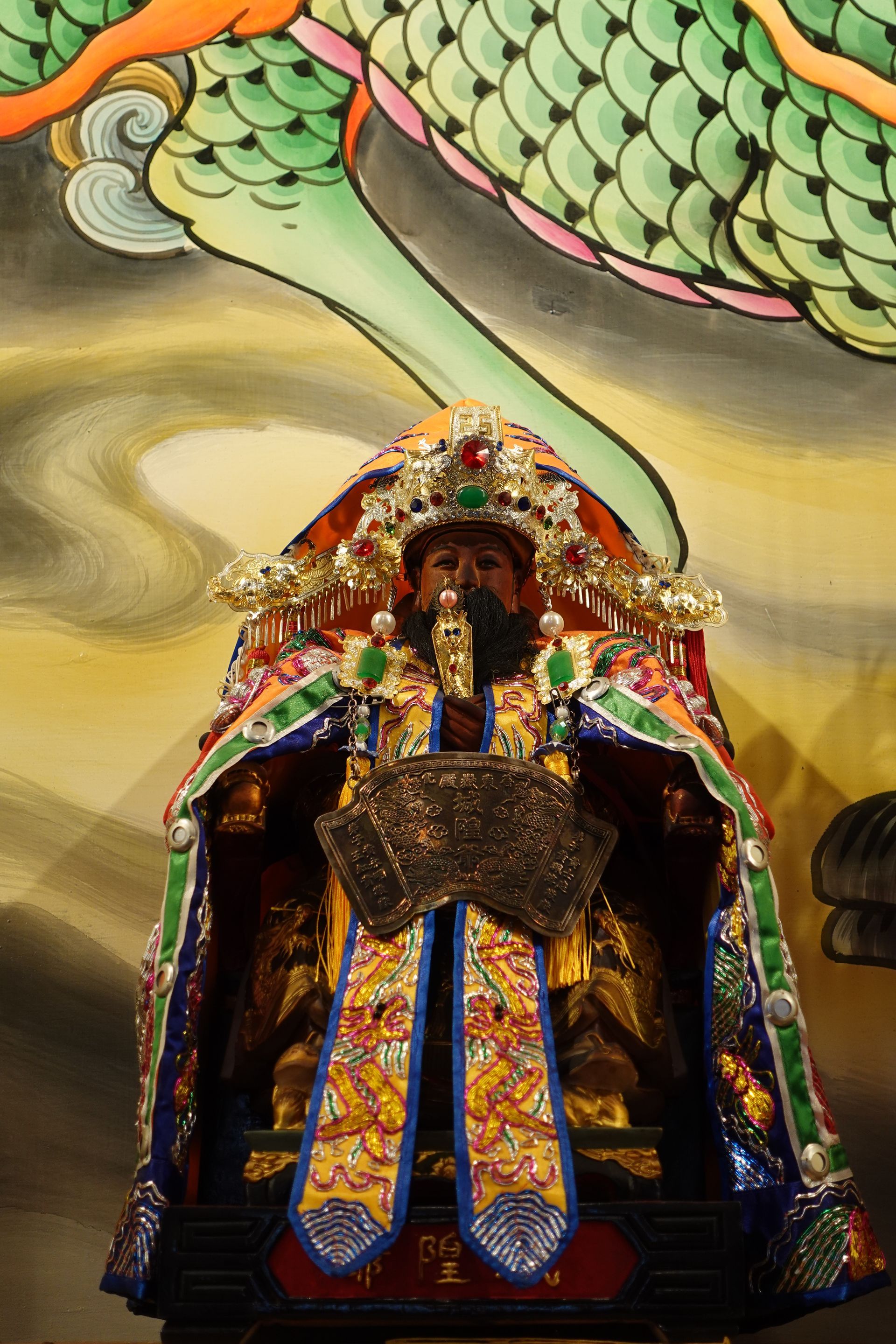
City God
Worship the deity
City God | Guarding the city and the border, observing both the living and the dead
The City God, also known as Cheng Huang Zun Shen, is a guardian deity in Taoism and folk belief. He oversees the local underworld, overseeing good and evil, keeping records of life and death, and examining the Yin and Yang. Temples dedicated to the City God are found throughout Taiwan to pray for peace, good weather, and the safety of the people.
The City God, a majestic deity, patrols the living world by day and presides over judgments in the netherworld at night. He serves as a bridge between the human world and the underworld. He examines the merits and demerits of the living, and those with grievances who have no recourse can appeal to him. Believers often pray to him for justice, peace of mind, and protection in their homes, making him a prominent guardian deity.
Temple services and salvation rituals performed by Dizang Temple
Weekday service introduction
To calm down, inquire about matters, perform sacrifices and clean the car.
Classification of sacrificial rituals
Eliminate disasters and offer prayers, pray for the ancestors, liberate infant spirits, and liberate enemies and creditors
Other special rituals
Rituals such as "general charity", "approaching ten types of lonely souls", and "three soldiers died for their country".
Items required for the ritual: treasury money, merit box, underworld ATM card (yellow paper), and offerings.




